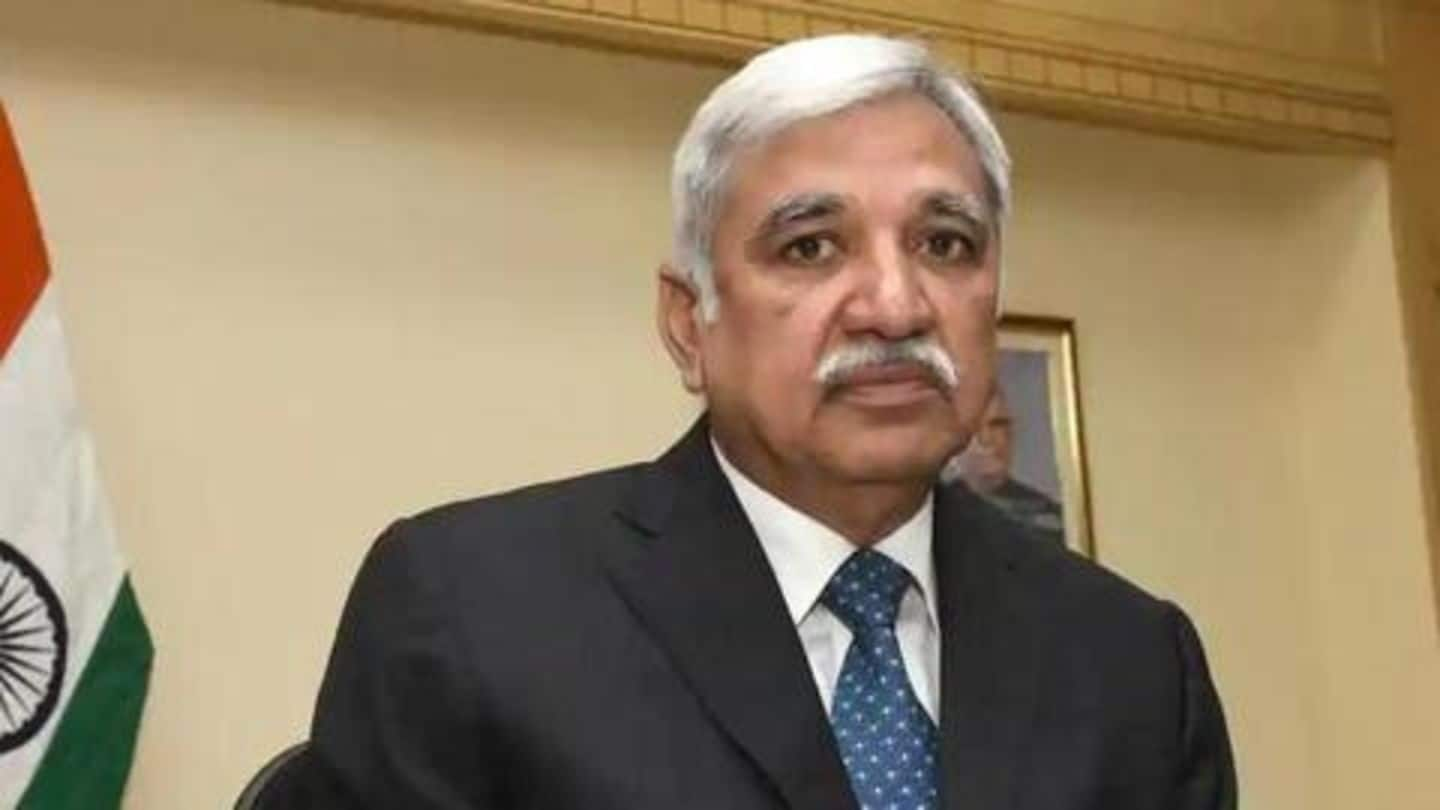
Lok Sabha elections: Results to be announced on May 23
What's the story
Chief Election Commissioner Sunil Arora announced the dates for Lok Sabha elections a short while ago in New Delhi's Vigyan Bhawan.
Reportedly, the code of conduct will come to effect immediately after the announcement. Arora said, "Any violation will be dealt with in strictest manner."
The polls will be held in seven phases and the result will be announced on May 23, Arora said.
Twitter Post
Know the dates of voting here
#LokSabhaElection2019: 1st phase polling to be held on 11th April, 2nd phase on 18th April, 3rd phase on 23rd April, 4th phase polling to be held on 29th April, 5th phase polling on 6th May, 6th phase polling on 12th May, 7th phase 12th May. Counting of all phases on 23rd May. pic.twitter.com/1IcW8KGg91
— ANI (@ANI) March 10, 2019
Information
Bihar, UP, West Bengal will have elections in seven phases
The states which will undergo single phase elections are Andhra Pradesh, Arunachal, Goa, Gujarat, Haryana, Himachal Pradesh, Kerala, Meghalaya, Mizoram, Nagaland, Punjab, Sikkim, Telangana, Tamil Nadu, Uttarakhand, Andaman-Nicobar, Dadra and Nagar Haveli, Daman and Diu. Notably, Bihar, Uttar Pradesh, and West Bengal will have elections in all seven phases.
Statement
Arora explains why these dates were chosen
Before announcing the dates, Arora said the EC held various rounds of discussions with Home Ministry to ensure fair polls. The EC also visited states and UTs to review the poll preparedness.
The dates were chosen after taking into account various factors like exams, festivals and harvest season, Arora explained.
He added CRPF forces will be deployed for smooth elections.
Assembly polls
Notably, Jammu and Kashmir won't go to assembly polls
Arora revealed simultaneous elections will be held in Andhra Pradesh, Sikkim, Odisha, and Arunachal Pradesh. He, however, added assembly elections won't be held in Jammu and Kashmir.
The CEC said J&K is going through turmoil and after taking into consideration the recent incidents of violence, it was decided to postpone the elections in the northernmost state.
2014
Last elections brought good news for BJP
The last parliamentary elections were held on nine days between April 7, 2014, and May 12, 2014. The votes were counted on May 16 completing the entire process in 72 days.
BJP, led by Prime Minister Narendra Modi, scripted history by winning 282 out of the 543 seats.
Congress, which was in power, was down to its lowest tally and won just 44 seats.
Code of conduct
Understanding the basic do's and don'ts before elections
With the announcement of dates, code of conduct will be implemented. The general conduct underlines that parties or political leaders can't aggravate mutual hatred.
Leaders are also directed to limit their criticism to schemes and works of their opponents, and not talk about their private lives. Parties are also barred from appealing to a certain religion.
They can also not indulge in "corrupt practices".
Rules
Earlier, EC said photos of defense personnel can't be used
Notably, the EC sent a letter to presidents, vice-presidents and other important members saying that they can't use photos of defense personnel in their campaign.
After the Balakot airstrikes, the operation of IAF was largely politicized, but EC said armed forces are neutral and shouldn't be involved in mudslinging.
However, the body didn't put restrictions on what leaders may say in rallies.
Stakes
The elections are crucial for both BJP and Congress
The upcoming weeks will be loaded with political action. While ghosts of rising unemployment, agrarian distress, and treatment of marginalized sections are bound to haunt BJP, Congress is eyeing a resurrection.
The grand old party was left with a bloody nose post-2104 and is hoping to clinch power with help from its allies across the country.
The game is on.